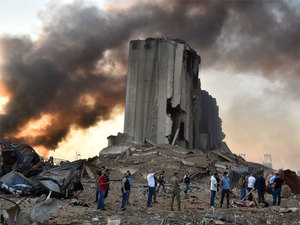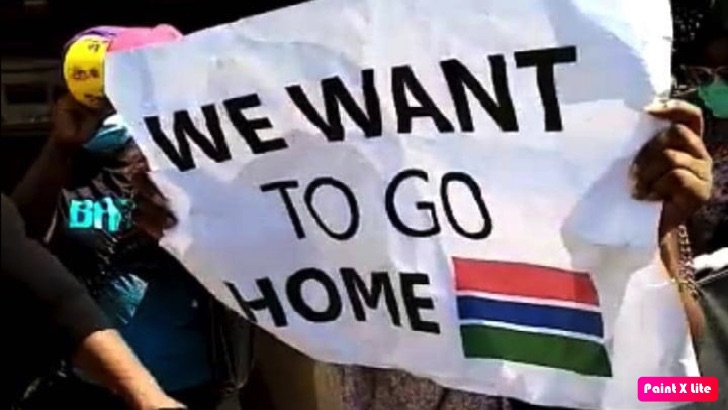
Whenever there are failures of leadership, truth is often obfuscated. There is a selective depiction of facts and information that the Psychologist semantic scholars call ‘selective exposure theory.’
Today the most significant threat harmful to Gambia’s democracy is a cousin of selective justice and misinformation. It also involves fanciful ideas about the actual state of the country.
However, it is far more widespread, and a far greater threat of selective facts and information sharing, and those flatter are harped on even as those that reveal and display spectacular incompetence are glossed over.
For instance, the government of President Adama Barrow appears not committed to or too morally conflicted to embark on fighting corruption and combating impunity enjoyed by a few sacred cows of monetarism both in the current and past government officials. They are accused of corruption and incompetence, also equally selective incapacitation of justice.
Why is President Barrow’s government showing a lethargic stance on accountability audit? The official line is that reforms have hamstrung; the country is already facing accountability doldrums almost four years in power.
However, where and when did the rain begin to beat the country? A social media commentator recently researched and did a comparative analysis and challenges of the political trajectory of the Gambia’s transition period from President Yahya Jammeh’s benevolence as well as his malevolent style of dictatorship comparing to a fledgling democracy of President Adama Barrow and contrasting the decade long of Lebanon’s all too familiar fickleness of a political machine mired in political tragedies. The lessons of the two countries.
Recently, Lebanon’s government resigns amid the massive explosion in Beirut, and dozens dead and thousands of injured also destroyed properties. The government’s resignation paves the way for a new national compact and accountability audit.
Did Gambians notice a contrast in the Gambia and Lebanon executive responsibility and accountability in leadership?

In the Gambia that the executive and legislature do not adhere to accountability audits in cases of a national tragedy? A case in point, the Faraba Bantang killings (saved former IGP Landing Kinteh who is either forced to resigned or resigned on his own accord) and the presence of foreign forces in the Gambian sovereignty and end illegal presence ( Senegalese forces).
There is no resignation or outrage by any Cabinet Minister or a petition from any National Assembly member whose mandate is in checking executive power.
Unlike Lebanon, in the aftermath of the blast, an entire cabinet resigned to pave the way for an accountability audit.
The civic duty of every Gambian behooves them to ask hard questions; to demand accountability for use or misuse of state resources and demand accountability as well ending impunity; to question the differences between Yahya Jammeh and Adama Barrow and to query why there is no accountability and cash in citizen’s pockets.
This calls for a clear-eyed appraisal of projects. The ones that will keep people should have adhered to applicable accountability audit and end impunity season are needful and not political chimeras, big on sound bites but excruciatingly slow on delivery. Citizens are telling it as it is.
Is anyone listening? It is a measure of the collective amnesia that defines our nation, the Gambia, that we are hardly paying attention to what is happening in Lebanon during the explosion, dozens dead and thousands injured and destroyed properties.
Perhaps more significant is the contrasting more than two-decades of tragedy, hopelessness, kleptocratic rule, and violent response from the two countries.
Gambia and Lebanon can be classified as a lost paradise. A tragedy of 22 years the Gambia during kleptocratic rule under Yahya Jammeh actually, small Gambia claimed more human atrocities and economical besides massive financial atrocities.
However, no one was held accountable culpable and responsible apart from a contentious and controversial commission of inquiry solely to probe Yahya Jammeh and his close cronies.

Moreover, most of those adversely mentioned in the commission report were exculpated, unlike in Lebanon, the cabinet led by Prime Minister Hassan Diab, resigned amid widespread protest fr accountability audit.
No fewer than 16 officials have also been taken into custody pending completion of the investigation into their roles in the wake of the catastrophic explosion in Beirut that triggered public outrage alluding that corruption in Lebanon is “bigger than the state.”
Beirut experienced a massive explosion at the port resulting from 2,750 tonnes of ammonium nitrate stored for six years without safety measures.
According to global media reports, the death toll had risen to 171, according to the outgoing Lebanese Health Minister, Hassan Hamad, who also confirmed that “the number of missing people ranges between 30 and 40.”
As huge as that number of casualties may be, it is still far less than what Gambiana endured during Yaha Jammeh’s malevolent dictatorship when Gambians were greeted by series of human rights violations later traced to rogue soldiers and other state-sponsored killings carelessly by the Jammeh administration.
Where is the outrage?
However, more significant is the lack of accountability. It is perhaps only in the Gambia that such a monumental tragedy could happen, and not a single person would be sanctioned for criminal negligence.
We must also add that in Lebanon, the people did not just resort to peddling gossips on WhatsApp or throwing tantrums on Facebook and Twitter; they have been demanding accountability of their leaders for the port tragedy.
In democracies, nothing matters more than accountability, which means that operators recognize that there are consequences for bad behaviour in any position involving public trust.
The reason is simple: Accountability not only benefits citizens, but it also ensures that when things go wrong, there are people to hold responsible.
Despite all its challenges, Lebanon’s recognition of this has resulted in officials being detained and the government resigning. In our climes, officials entrusted with onerous responsibilities, including those involving ordinary citizens’ lives, are never held to such standards by their superiors or the public they are supposed to serve.
Perhaps it is on the issue of graft that we see the clearest absence of accountability–in both the private and public sectors. There are several other allegations of corruption, and mega sleaze against the government of President Adama Barrow, whose cabinet minister also admitted before the National Assembly of mega corruption in the government.
Today, Gambians are being treated to a multiplicity of in-your-face scandals. The accusers and the accused are well aware that we are running a system that is devoid of accountability and that nothing will happen to them.
From the preceding, it is clear that we are dealing with crimes for which there is a pang of collective guilt given the way we have all conspired to elevate elected (and appointed) officials over and above the law.
Therefore, whichever way one looks at it, the problem of the Gambia can be located in the lack of accountability that cuts across all sectors and all spheres of our national life, including the secular.
Moreover, it is also clear that where citizens’ lives do not matter to people in authority, it is futile to expect that there would be fidelity in managing their resources.
Accountability results in those who work for the people adding value to what they do and being aware that negligence has a cost. When those in positions of public trust know there are consequences for their choices or refuse to make, there is a level of commitment and responsibility that goes into how they perform their roles.
If they also know they can get away with any infraction, where is the incentive to do, right? Against the background of what is now happening in Lebanon following the Port blast, we can see the contrast between Lebanon and the Gambia in terms of both public and the official response to tragedies or matters of transparency.
The serial lack of accountability audit and end impunity in our system on issues of financial probity or those involving citizens’ lives is a subversion of democracy, which presupposes that the government represents the people and accounts to (and for) them.
Outside that accountability, public officers become outlaws, and the government becomes nothing but a considerable burden. That is a challenge we need to deal with accountability and end impunity collectively.
By Alagi Yorro Jallow











Recent Comments